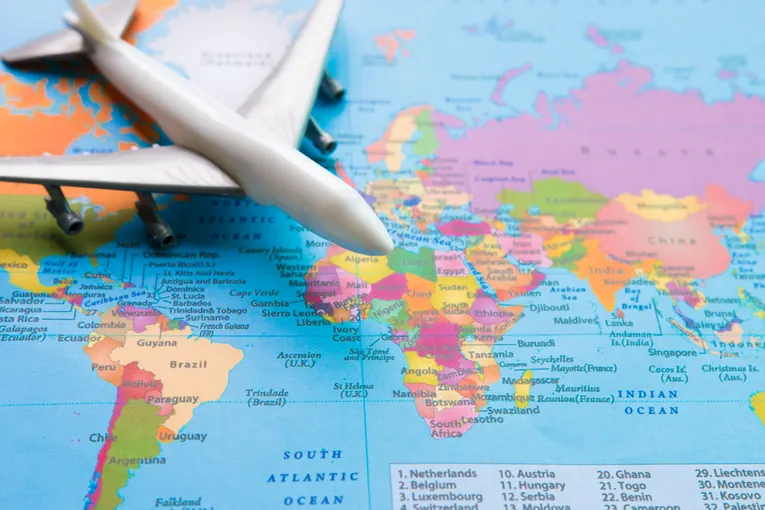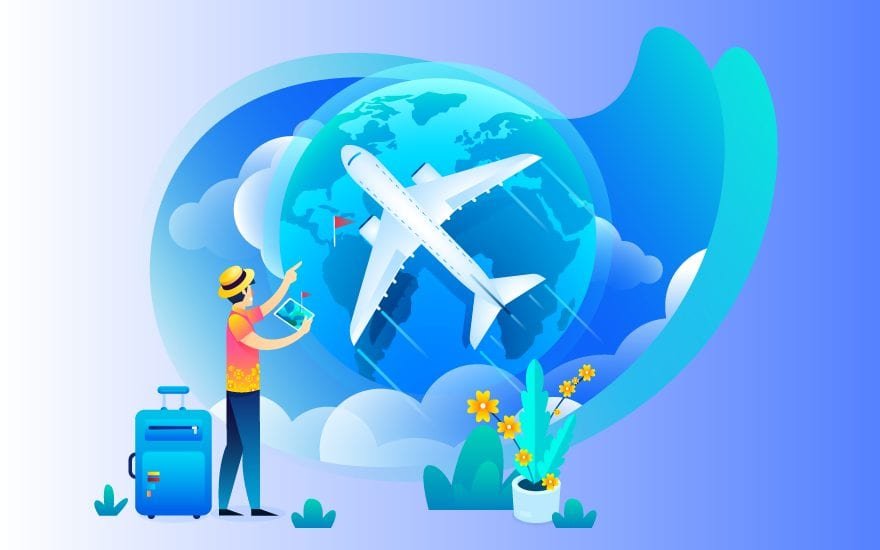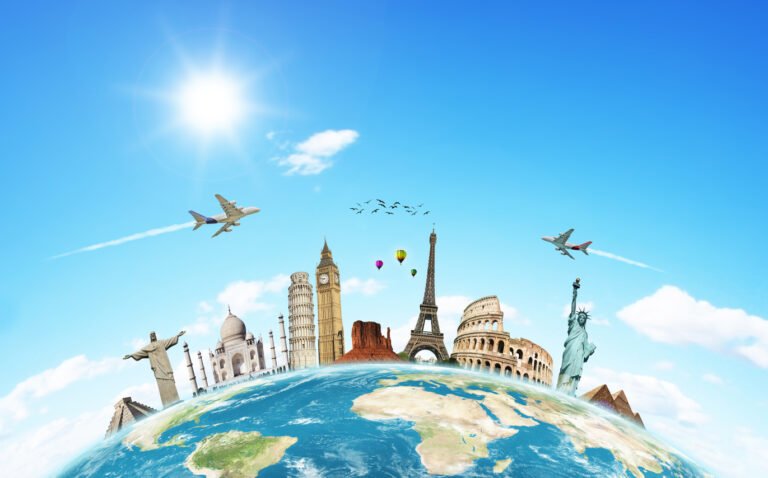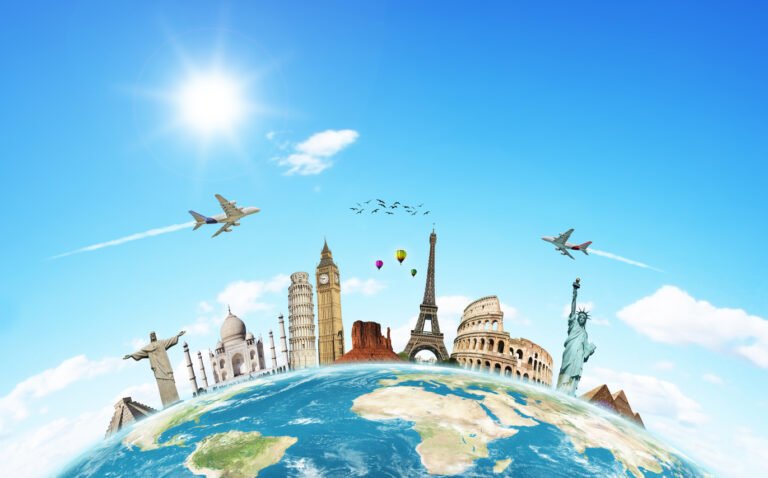Welcome to Travel Scope News, your trusted guide to where travel is headed in 2025. In this edition, we dive into the top travel trends and ecological insights shaping journeys around the world. We focus on how sustainability, technology, and shifting traveler behavior intersect. By reading this, you will gain an edge in knowing what’s next and how to travel smarter.
1. Emerging 2025 Travel Trends According to Travel Scope News

Here are the major trends Travel Scope News sees dominating 2025’s travel landscape.
1.1 Noctourism & After‑Dark Adventures
One intriguing trend is noctourism—travel experiences focused on nighttime. Think stargazing, bioluminescent beaches, dusk museum visits, and moonlit forest walks. In 2025, more travelers will favor the magic of night. Why? Cooler temperatures, fewer crowds, and novel perspectives.
Nighttime excursions also appeal to those seeking unique or offbeat experiences. Against this backdrop, destinations with dark skies, northern lights, or luminous seas will be hotter than ever. Travel Scope News predicts that destinations like Iceland, northern Norway, or remote archipelagos may see increased night‑based tourism growth.
1.2 Calm Vacations & JOMO Travel
In 2025, many travelers will prefer calm vacations—trips with minimal stimuli, quiet surroundings, and time to rest. This overlaps with JOMO (Joy of Missing Out) travel: intentionally avoiding overpacked itineraries and social pressure. Instead of chasing famous landmarks, people will choose slower, simpler journeys.
According to Travel Scope News, lodgings offering “quiet zones,” nature retreats, or digital detox options will gain popularity. Travelers will opt for fewer destinations but deeper experiences.
1.3 Off‑the‑Beaten‑Path & Micro‑Destinations
Tourists are growing tired of crowds and the classics. So micro‑destinations—small towns, rural regions, hidden islands—are becoming mainstream. Rather than going to Paris, travelers may stop at nearby smaller towns. Rather than big safari parks, micro reserves or community-managed sanctuaries are gaining favor.
Travel Scope News sees travelers chasing authenticity. These smaller places often have lower environmental pressure, and locals get more benefit per visitor, making the travel more sustainable.
1.4 Tech‑Driven Personalization & AI Suggestions
One of the strongest trends is hyper-personalization using AI and advanced analytics. Travelers will expect platforms or tools that instantly tailor suggestions of where to go, stay, eat, and explore based on tastes, budget, and pace.
Even prior to booking, AI may propose an ideal 7‑day itinerary, with dynamic adjustments for weather or crowd levels. In fact, Travel Scope News foresees many travel apps embedding large language models (LLMs) to power conversational trip planning assistants.
1.5 Wellness, Purpose & Regenerative Travel
Travel in 2025 is less about “seeing it all” and more about meaning. People will plan wellness travel—yoga retreats, forest bathing, healing resorts. They will also look for purpose travel—volunteering, ecological restoration, and cultural exchanges.
Regenerative travel—which gives back more than it takes—will be a buzzword. Destinations and operators that commit to restoring ecosystems, supporting local communities, and preserving culture will attract travelers who care deeply.
1.6 Multi‑Phase & Multi‑Generational Travel
Travel Scope News expects more multi-generational travel (grandparents, parents, kids together) and multi-phase travel (mixing business, remote work, and vacation). Hybrid travel (bleisure) grows stronger. People may spend a few days working remotely in one place, then extend for leisure.
1.7 Event & Phenomenon‑Based Travel
From eclipse chases to music festivals and seasonal migrations, travel driven by events and natural phenomena will remain strong. People plan around celestial events, concerts, cultural festivals, and seasonal animal migrations.
Travel Scope News sees this as a way destinations stay relevant—by linking calendar events to tourism flows.
1.8 Climate‑Aware & “Coolcation” Choices
Given rising heat and climate concerns, many travelers in 2025 will pick cooler climates or less extreme seasons. We call these coolcations—visits to higher altitudes, northern latitudes, or coastal places with mild weather.
Also, travelers will avoid peak heat months or extreme seasons, opting instead for off-peak windows. This shift reduces stress, cost, and environmental strain.
1.9 Budget‑Smart & Value‑First Travel
While luxury travel remains, many will lean toward value-first travel. Instead of splurging everywhere, travelers will reserve expensive splurges intentionally after budgeting for essentials first. Travel Scope News calls such travelers “reset jetters”—they plan modest trips now, upscale later.
1.10 Micro‑Trips & Short‑Breaks
Short, frequent micro‑trips (2–4 days) rather than long vacations are trending. Busy schedules, remote work flexibility, and travel fatigue lead people to take more mini getaways. Travel Scope News anticipates that short escapes will become a main driver for regional tourism growth.
2. Eco Insights & Sustainable Tourism Moves
Given the title “Eco Insights,” this section dives deep into sustainable travel, its challenges, and its future.

2.1 Why Eco Travel is Central to 2025
Sustainability is no longer optional—it is essential. Travelers expect ethical operations, low environmental damage, and authentic community benefit. For travel trends 2025, sustainable tourism is a core lens.
Reasons eco travel matters:
- Protecting landscapes & biodiversity
- Ensuring local benefits and equity
- Sustaining what makes destinations special
- Aligning with traveler values
As climate pressure mounts, destinations that don’t adapt risk degradation or closure.
2.2 Practices & Innovations in Sustainable Tourism
Travel Scope News highlights several best practices:
- Carbon reduction over offsetting: Instead of just buying offsets, operators seek to reduce emissions upstream (efficient transport, clean energy).
- Green certifications: Hotels and resorts adopt credible certifications (LEED, EarthCheck).
- Local sourcing and fair wages: Food, materials, labor from the nearby community.
- Community-based tourism (CBT): Locals run homestays, tours, cultural exchanges, guiding—ensuring revenue distribution.
- Regeneration projects: Tourism revenues fund reforestation, coral restoration, and habitat rebuilding.
- Visitor management systems: Quotas, timed tickets, zone limits to manage overuse.
- Education & behavior codes: Pre-trip orientation, signage, guidelines for respectful travel.
2.3 Challenges in Eco Travel
- Greenwashing: False “eco” claims that lack substance.
- Higher operational costs: Clean energy, waste systems, certification investments.
- Balancing access and conservation: Too many visitors, even if eco-minded, can damage fragile sites.
- Coordination complexity: Needs alignment among the government, communities, private sector.
- Measuring real impact: Verifying sustainability claims is often weak or opaque.
- Unequal benefits: Ensuring locals—not only foreign investors—gain value.
Despite the hurdles, eco travel opens a path for long-term viability and brand strength. Travel Scope News predicts eco-certified destinations will outperform non‑sustainable ones in traveler preference.
2.4 Eco Insights in Action: Case Snapshots
- Marine and island destinations: Resorts restoring coral reefs, banning single-use plastics, and offering marine education to guests.
- Mountain retreats: Using solar energy, limiting daily arrivals, and hiring local guides.
- Rural villages: Community lodges run by locals, cultural immersion, agro-tourism.
- Urban green hotels: Buildings with vertical gardens, rainwater harvesting, and energy-efficient design.
Travel Scope News suggests that such models will increase in visibility as travelers seek alignment of values with experience.
3. Technological Updates in Travel
Because the title includes “Top 2025 Trends & Eco Insights,” it’s crucial to show how technology supports both. Here are key tech developments we expect to unfold.
3.1 AI & Smart Travel Assistants
Artificial Intelligence will play a central role. Expect:
- Conversational trip planners: Ask in natural language (“I like beaches, food, culture in 7 days”) and get suggested itineraries.
- Real-time adjustments: If weather changes or transport delays occur, your itinerary adapts automatically.
- Smart suggestions: AI will suggest hidden gems, local events, and alternate routes.
Travel Scope News expects that 2025 will see many travel apps embed large language models to assist travelers from planning through execution.
3.2 AR / VR Experiences & Augmented Tourism
- Virtual previews: Before booking, you can “walk through” a hotel, museum, or trail in VR.
- AR overlays during travel: While walking through a city, AR can show historical notes, translation of signs, or immersive storytelling on your phone or AR glasses.
- Mixed reality storytelling tours: Combine physical location with digital overlays to enrich experiences.
These tools increase engagement, lower booking risk, and supplement real-world travel with richer context.
3.3 Smart Infrastructure & IoT Integration
- Contactless & biometric systems: Airports, hotels, and transit systems will adopt facial recognition or touchless options for check-in and security.
- Room automation: Lighting, climate, curtains, music—all tailored automatically.
- Sensor networks: For energy efficiency in hotels, real-time crowd monitoring, and predictive maintenance.
- Baggage tracking systems: IoT tags or sensors to track luggage in real time, reducing loss.
- 5G / 6G rollouts: Enable seamless connectivity, edge computing, and real-time AR/VR services.
These innovations improve convenience, safety, and personalization.
3.4 Data Analytics, Prediction & Personalization
- Demand forecasting: Using historical and real-time data to optimize pricing, supply, and staff scheduling.
- Personalization engines: Recommending travel components (accommodation, experiences) based on your profile.
- Sustainability scoring: Travel platforms will display eco‑scores, carbon impact, and social metrics to help travelers make informed choices.
With these, travel becomes more intelligent, responsive, and aligned with values.
4. Post‑Pandemic Behavior & Travel Scope News Observations
A major part of “Top Travel Trends & Eco Insights” is how post-pandemic behavior informs future travel. Here’s what Travel Scope News observes.

4.1 Health, Safety & Certainty First
Though the worst of COVID-19 may recede, health and safety remain non-negotiable. Travelers expect:
- Strong sanitary protocols in transport and lodging
- Real-time health updates
- Flexible cancellation policies
- Travel insurance that covers unexpected health risks
Travel Scope News notes that long-term trust is built by reliability, transparency, and visible safety measures.
4.2 Outdoor, Open‑Space & Nature Travel Preference
Indoor, crowded venues still carry risk in many eyes. So post-pandemic, many prefer:
- National parks
- Safaris & wildlife reserves
- Beaches, trails, islands
- Nature reserves and open-air cultural spaces
These kinds of travel align closely with the sustainable and quiet trends we saw above.
4.3 Bleisure, Remote Work & Slow Travel
Remote work opens the door to mixing travel with work. Many adopt slow travel—lingering in fewer places for longer stretches. This reduces packing, transport waste, and allows a deeper connection.
Travel Scope News predicts hybrid trip models (work + vacation) will become standard among professionals, freelancers, and self-employed travelers.
4.4 Focus on Authenticity & Local Connection
After years of “virtual everything,” people crave real encounters. Travelers now seek:
- Local hosts
- Community‑led tours
- Offbeat paths
- Cultural immersion
Rather than consuming tourist traps, many will lean toward learning, listening, and participating.
4.5 Regret Minimization & Travel Urgency
Many postponed trips due to the pandemic. Now there is a sense of urgency—people want to fulfill dreams while they can. Travel becomes not just an enjoyment but a life value, an experience, a memory.
4.6 Tech Reliance & Digital Literacy
More travelers now accept and expect tech tools—apps, AI assistants, real-time translation, contactless services. Even less tech-savvy people are adapting because of necessity.
Travel Scope News notes a generational shift: younger travelers adopt tech faster, older ones gradually accept essentials (e.g., digital boarding, e‑visas).
Conclusion
As we wrap up this in-depth journey through the Top 2025 Travel Trends & Eco Insights, one thing is clear—travel is changing fast, and it’s changing for the better.
Travelers in 2025 are no longer just tourists. They’re explorers, conscious consumers, and digital nomads seeking balance, meaning, and connection. From eco-friendly choices and tech-driven planning, to post-pandemic mindfulness and offbeat destinations, the industry is pivoting to meet new expectations.
What makes this transformation exciting is its opportunity for impact. Every traveler can now help preserve the planet, support communities, and experience the world more deeply. At the same time, destinations, brands, and platforms must adapt—becoming smarter, greener, and more inclusive.










